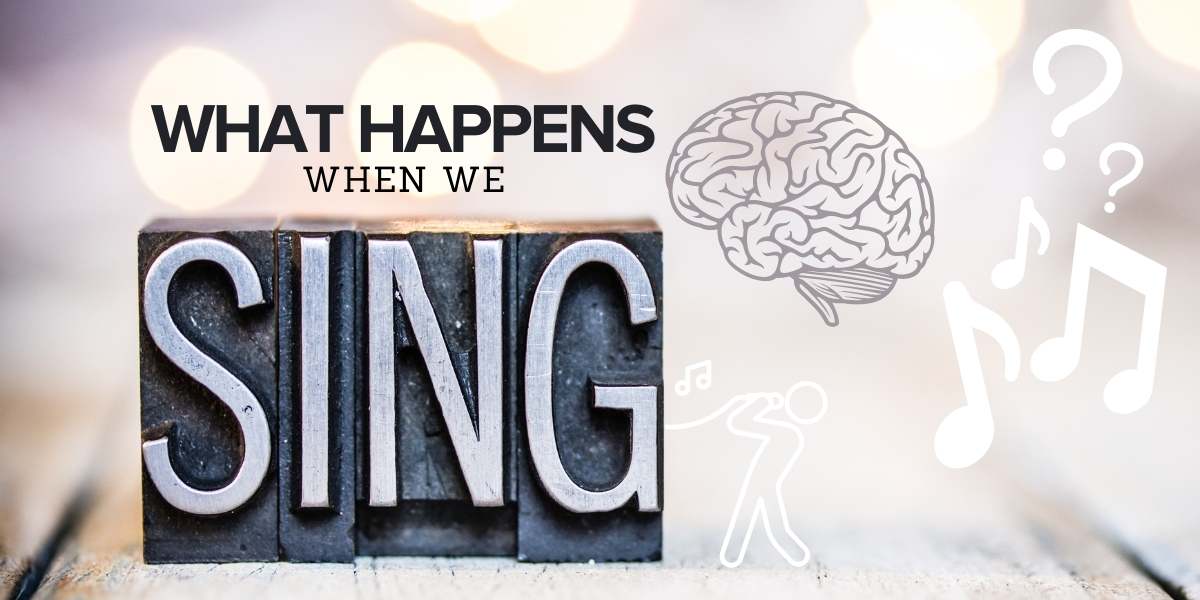If you’ve ever been to Marquee, you know we like to sing! And that’s because when we sing, it’s not only a mood booster, but also a great exercise for the brain.
Many species sing, but we seem to be the only ones who are actually able to willingly learn new songs, and are consciously in control of changing our pitch.
If you’ve ever wondered what actually happens when we sing, we’ve got some cool facts for you today!
*Disclaimer: All of the opinions and content presented in this post are not professional advice and are true to the best of the author’s knowledge. This post is meant for inspirational and entertainment purposes only.*
We use both sides of our brain
When singing, the sections of our brains called the temporal lobes fire up. Your temporal lobes are located on the sides of your head, a little back from where your temples sit.
The left side of the brain is where language and words are created, and the right side is known as our “creative side”. It’s used for determining pitches, tones, harmonies and more. Practicing singing can be a great way to help the connection between our language and creativity.
This can explain the reasoning for why people with head injuries who cannot speak, might still be able to sing. As long as the right temporal lobe is unaffected, we can sometimes still sing even when we can’t form proper speech.
According to some professionals, it can also explain the reduction of heavy accents in some when singing.
Builds resilience to degenerate diseases
Singing can also help improve our memory. When we continuously learn and memorize lyrics, harmonies and notes, it starts to become easier and easier to remember new ones.
It has also been shown to be quite effective in building resilience against diseases like dementia and Alzheimers. It’s even been proven helpful in therapy for those already diagnosed.
And the best part: even if we’re not total rockstars, we still reap these amazing benefits.
Our bodies benefit
Singing uses many different parts of the body. Of course, our voice box and vocal cords are used, but we also use the diaphragm, lungs, abdominal muscles, back muscles and rib muscles. So many parts of the body are used to produce what can seem like such a simple thing. So, when we sing, we can work out those muscles a bit, increase our stamina and it even looks like we can burn a few calories in the process!
Apparently, for someone of 150 pounds, standing and singing for 60 minutes can burn somewhere around 140 calories – and that number of calories burned will increase if you weigh more. I’d say that’s a win win!
Breath is also a large physical part of singing. And from an interview with BBC, Sarah Wilson, a clinical neuropsychologist, said that when we sing, the act of “[f]ocusing on controlling your rate of breathing – a key skill in singing – activates parts of the brain that are linked to emotion”.
Because we activate that part of the brain linked to emotion and practicing deep breathing, it can provide mental health benefits as well.
Singing promotes mental wellbeing
“What we are doing when we practise and engage in singing is developing this specialised network, which gives us that physiological reward hit, the chills, the dopamine release, the sense of feeling good,” (Sarah Wilson – BBC)
Singing is a natural stress and anxiety reliever. Hormones like oxytocin that help increase our feeling of bonding and reduce loneliness and depression, is only one of the many released when we sing.
Overall, singing can help significantly with our quality of life.
“In any situation whether it is under stress or [with] any physical ailments, illness, psychological deprivation, music has the potential to affect our body and mind.”
Singing supports our overall Immunity
Stress reducing hormones are released when we sing, and that helps improve our mood.
Singing strengthens our abilities to fight off illness and disease since our minds are more at ease, we’re getting a good dose of oxygen and, ultimately, allowing our cells the opportunity to better regenerate.
Healthy mind, healthy body.
Singing Improves connection
You’ll know if you’ve ever been a part of a band or a cast, that there’s usually a greater sense of belonging, connection and bonding over whatever it is we’re doing.
It’s been shown that all of these benefits can be even more beneficial when we sing with other people. Our sense of bonding is significantly improved and we are able to practice connection and empathy.
When you sing with others and try to harmonize, you’re building those skills of listening to other people, being aware of those around you and trying to contribute rather than just focusing on yourself. Very similar to the effects and benefits of improv, our mentality becomes not about our performance alone, but about how our voice can best support the collective voice.
In the end, that’s why we sing together at large gatherings, funerals, celebrations and why we turned to singing with one other from our balconies during the pandemic.
It brings people together in the best way.
It’s never too late to start singing, and there’s no better time than today!
Here at Marquee, we’ve got plenty of amazing classes and resources that will have you singing all day long – so click here to sign up today!
And remember… next time you hear your favourite song on the radio or you perform on stage, make sure to sing with all your heart!
References
https://www.sciencedaily.com/releases/2018/06/180628151903.htm
https://www.openmicuk.co.uk/advice/what-happens-to-your-brain-when-you-sing/
https://www.londonsinginginstitute.co.uk/what-happens-when-we-sing/
https://ideas.time.com/2013/08/16/singing-changes-your-brain/
https://www.bbc.com/future/article/20200518-why-singing-can-make-you-feel-better-in-lockdown
https://www.sciencedaily.com/releases/2018/06/180628151903.htm


0 Comments